Fatigue is your body's way of adapting to a fitness regimen and making you aware that you have reached your limit. So while you can’t completely avoid exercise fatigue, the following healthy lifestyle changes and tips can help keep you from hitting a wall in your workout.
Your daily food intake should include complete proteins (such as meat, eggs and milk, or quinoa, chia seeds and soy if you follow a plant-based diet), fruits, vegetables and carbohydrates. The amount of carbohydrates you eat should be about 40-60% of your caloric intake for aerobic athletes and 30-35% for anaerobic (nonaerobic) athletes. This will maintain your muscles’ glycogen levels, which are depleted during exercise. Protein consumption should account for about 20-30% of your caloric intake and healthy fats should make up the remaining 10-15%.
Eat a light meal or snack about two hours before working out. Try to avoid working out on a full stomach or an empty stomach. Also make sure to eat within one hour after your workout. This meal should be high in protein as it will aid muscle recovery and help your muscles repair from the stresses that exercise places on them.
Drinking water throughout the day and during exercise is crucial to prevent dehydration and muscle fatigue. Try to drink 10 to 12 8-oz glasses of water daily and 7 to 10 ounces of water every 10 to 20 minutes while exercising. This will replace the water that is lost due to sweating.
As your respiratory muscles begin to fatigue, oxygen is redirected from your limbs to your diaphragm. One way to improve your endurance is to gradually increase your aerobic capacity with interval training. You can also increase aerobic capacity by changing things up from time to time and incorporating different types of exercise. Say you’re a runner who hits the pavement four to five times a week.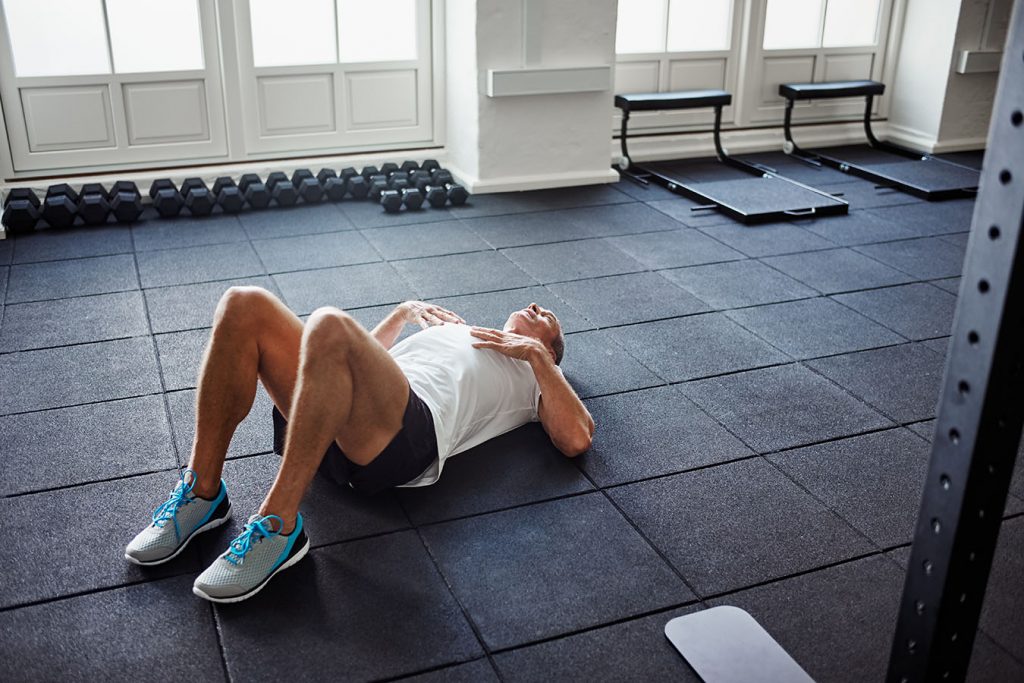 Instead, think about swapping out one or two of your runs for a bike ride or a swim.
Instead, think about swapping out one or two of your runs for a bike ride or a swim.
Cross training, or mixing both aerobic and strength-based workouts, is another option that has been shown to be beneficial in improving aerobic capacity. Whatever method you choose, as your endurance increases, the added boost of oxygen in your blood will keep your muscles working for longer periods of time and prevent lactic acid buildup.
Pay attention to muscle imbalances and incorrect movement patterns. The right strength and flexibility will help you achieve correct form during exercise. If you can’t perform an exercise with proper form, you should either decrease your weight or modify the exercise. Improper body mechanics decreases efficiency and burns more energy than necessary. Use a mirror to help provide visual feedback. This allows you to see if you are using correct form as well as highlights where adjustments in technique need to be made.

Complete a warm-up and cool down for 5 to 10 minutes each time you exercise. Start off slowly and steadily increase the intensity of your workouts so that your muscles are gradually challenged and can build over time. A dynamic warm-up, such as foam rolling, dynamic stretching and mobility exercises, is a great way to get the body primed and ready to move.
Allow adequate rest between workout sessions and strength repetitions. Make sure the rest break is enough to catch your breath between exercise sets. Listen to your body; fatigue is a sign that recovery has not taken place yet. If that is the case, then perform active recovery, which means participating in low-impact, low-intensity exercise such as walking, light swimming or yoga. Do not return to higher-intensity exercise until you feel fully recovered and recharged.
Lastly, the most important thing for recovery is sleep. Make sure that you are getting plenty of rest and allowing your body to repair after working out.
It’s normal for your muscles to feel fatigued after a workout, but are you yawning non-stop and feel like you need a nap after a workout?
Feeling deprived of energy is common post-exercise when glucose stores are running low, and your central nervous system loses its ability to keep powering your muscles.
It’s inconvenient and frustrating, but serious exhaustion post-workout could signify that your body is missing something.
We’re digging into why you feel tired after a workout and giving you our best tips to stay energized.
Looking for the best all-in-one recovery supplement on the market? Then look no further than Performance Lab Recover!
Have you ever finished a brutal workout only to feel like your body is completely drained? You get home, and the first thing you want to do is hit the sheets…
Post-workout fatigue is common after exercise, and the factors that cause it differ between people.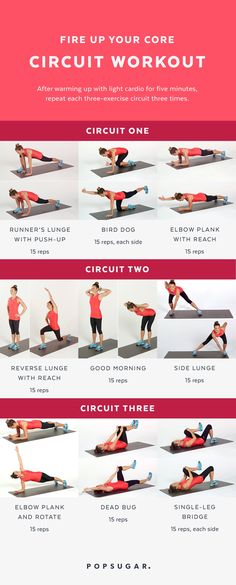 For some, it may be overkill in the gym, while for others, it could be because of lifestyle factors.
For some, it may be overkill in the gym, while for others, it could be because of lifestyle factors.
If you’re continually training at high intensities without sufficient rest, you risk overtraining, exacerbating chronic fatigue. Overtraining syndrome (OTS) is a condition characterized by fatigue and underperformance.
It can result from overreaching—an accumulation of training load that results in performance decrements requiring periods of recovery, and when given appropriate rest, can ultimately increase performance 1.
However, overtraining syndrome can result when overreaching is taken to the extreme and combined with an additional stressor. OTS results from systemic inflammation and its subsequent effects on the central nervous system, such as mood changes, central fatigue, and neurohormonal changes 1.
Although overtraining syndrome is rare in the general population, the more likely culprits for fatigue could be functional and non-functional overreaching.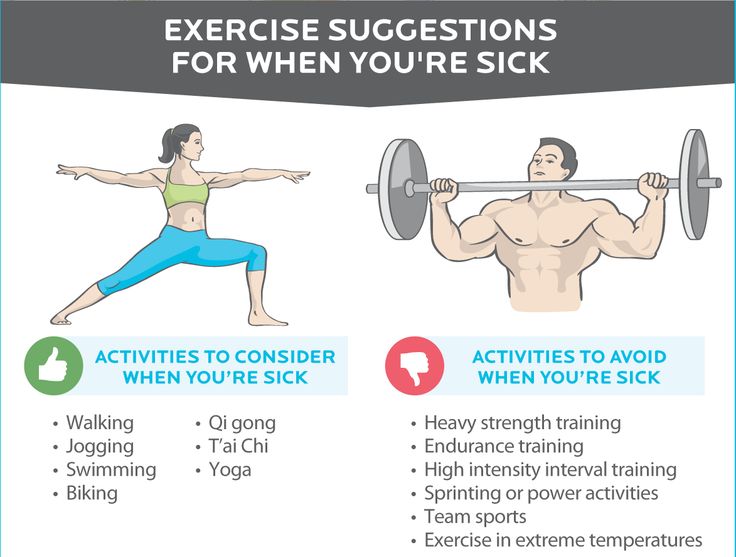
So, why do you feel tired after working out?
That said, other factors can play a role in why we feel tired after a workout. Let’s take a look.
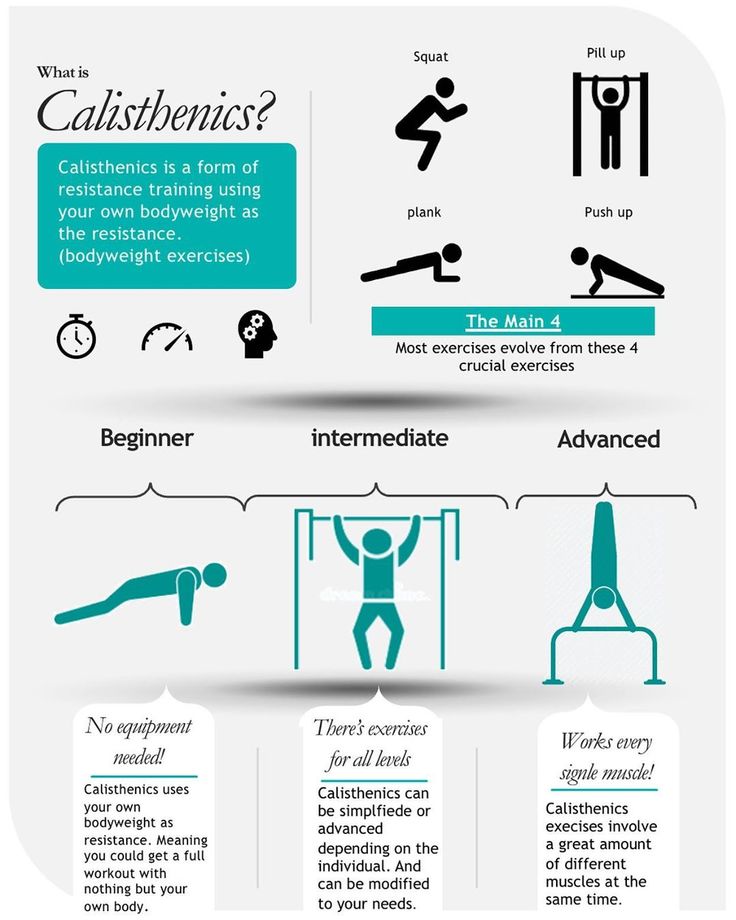 Br J Sports Med. 2000;34(1):67-68.
Br J Sports Med. 2000;34(1):67-68. This is the body's natural response to exercise. “The feeling of fatigue occurs in response to a stressor, which is essentially any workout,” says Valentin Zinin, instructor of the SuperPopa group programs at Kometa fitness clubs.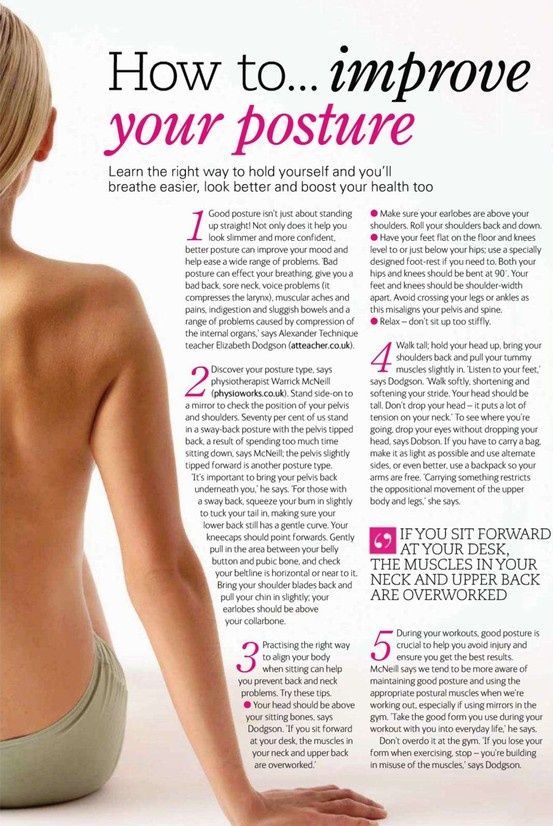
Do not be afraid of these sensations: the feeling of tiredness has a certain function. “Fatigue during physical work or training is a natural mechanism that protects us from overwork and, as a result, from injuries and overloads on the part of the internal organs and body systems,” adds Ilya Voronin, cybernetics doctor, specialist in restorative medicine and medical massage at the SportMedica clinic .
In other words, if we did not feel fatigue from training , we would greatly harm our health by continuing to exercise at the limit of our capabilities.
Interestingly, everyone feels tired after fitness in different ways. “Fatigue can be felt differently by athletes depending on the type of load (strength training, cyclic loads, sports games, etc.) and training conditions (in the heat, in the mountains,” notes Ilya Voronin. “For some, fatigue is expressed in the inability to do another repetition (muscle failure), for someone it is pain and burning in the muscle, and some feel rather moral exhaustion and unwillingness to continue training.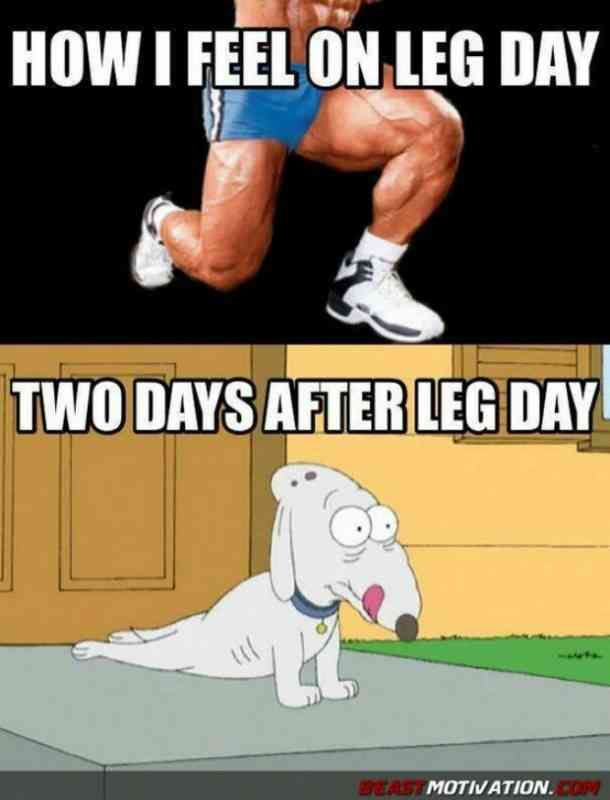 ” nine0007
” nine0007
Therefore, doctors and trainers consider the feeling of fatigue to be an individual parameter, while fatigue is a general mechanism that is the same for everyone.
Experts have several versions. The most popular - discomfort is associated with the depletion of energy reserves in the body and the accumulation of metabolic products - lactic and other acids. “Most of all lactic acid is formed during intense exercise of short or medium duration,” notes Ilya Voronin. nine0007
Here is another version. Changes in the muscles are secondary to the depletion of the CNS motor centers. That is, roughly speaking, our nervous system is the first to “get tired” of the load, and only then it responds with discomfort in the body. “The nature of this phenomenon is not entirely clear: perhaps the synthesis of signaling molecules to the muscles does not keep up with the commands of the central nervous system, or certain brain structures “extinguish” the excessive activity of motor neurons,” adds Ilya Voronin.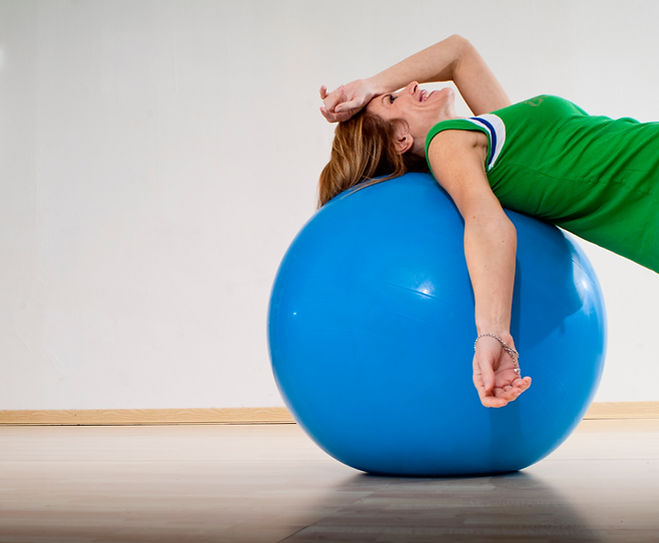 Both forms of fatigue are interrelated. Acidification in muscles and blood impairs neuronal function and muscle motor control, resulting in even more energy expenditure, oxygen debt, and more acidification.” nine0007
Both forms of fatigue are interrelated. Acidification in muscles and blood impairs neuronal function and muscle motor control, resulting in even more energy expenditure, oxygen debt, and more acidification.” nine0007
In any case, fatigue from training should be considered as a normal process. Another thing is that it must be distinguished from overtraining, which can significantly harm health. “Normally, fatigue after a workout should be short-term,” says Valentin Zinin. - If we are talking about aerobic exercise, it is normal if a person feels tired for the first hour or two, and after 4-5 hours these feelings disappear. After 8-10 hours, you can already train again. After a power load, the body needs an average of 2-3 days to recover, and after an endurance workout - 1-2 days. nine0007
If you feel weak for longer than this time after exercise, or if you feel very tired , you are probably overtraining.
[image id = "3772162"]
"Overtraining" refers to overtraining, excessive fatigue from regular exercise.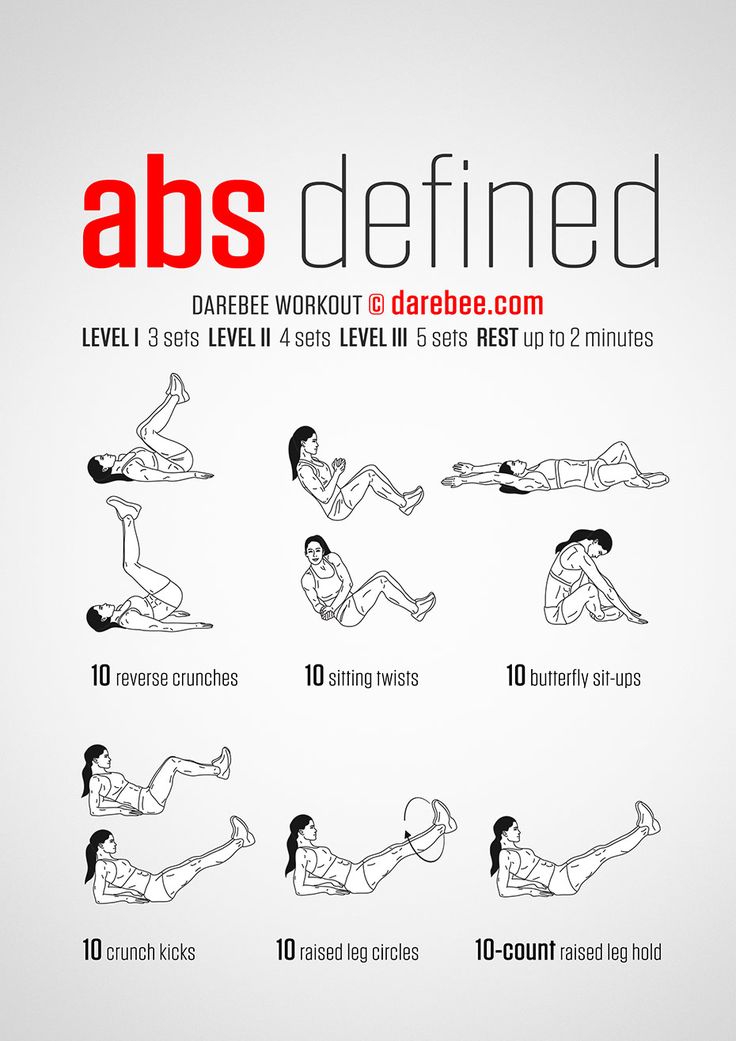 “This is already a pathological condition with characteristic changes in functional, behavioral and biochemical parameters, requiring medical intervention. For athletes of any level, it is important to recognize the signs of overtraining in time,” says Ilya Voronov. nine0007
“This is already a pathological condition with characteristic changes in functional, behavioral and biochemical parameters, requiring medical intervention. For athletes of any level, it is important to recognize the signs of overtraining in time,” says Ilya Voronov. nine0007
The expert recommends immediately contacting a doctor or trainer if you notice at least three items from the list:
We have already written about all the symptoms of overtraining in detail.
A properly designed training plan (it is important that the load is dosed) and high-quality recovery will help to avoid overtraining.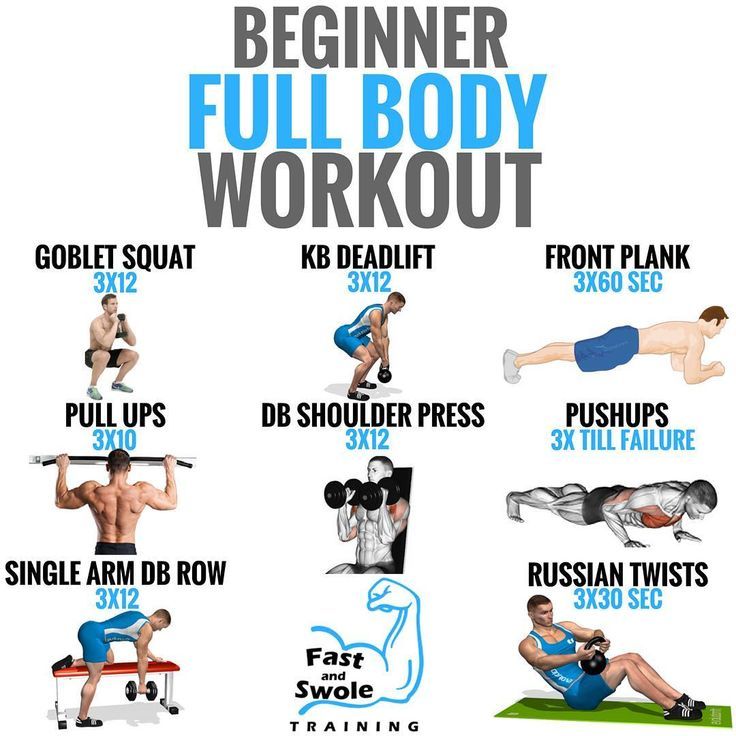 “Long-term signs of fatigue are a signal to reduce the intensity of training. Depending on the sport, you can reduce the working weight/working pace, distance, etc. - says Ilya Voronin. - The regularity of classes in priority over intensity: first of all, reduce the amount of load, lastly - the number of workouts. However, this rule does not work for injuries. In this case, the decision on the load regimen is made by the sports doctor. nine0007
“Long-term signs of fatigue are a signal to reduce the intensity of training. Depending on the sport, you can reduce the working weight/working pace, distance, etc. - says Ilya Voronin. - The regularity of classes in priority over intensity: first of all, reduce the amount of load, lastly - the number of workouts. However, this rule does not work for injuries. In this case, the decision on the load regimen is made by the sports doctor. nine0007
It will not be possible to completely get rid of fatigue after classes (and this is not necessary, as we said above), but to somewhat minimize discomfort and speed up recovery is completely.
“Proper recovery after exercise includes a sufficient amount of sleep and rest, a balanced diet,” says Valentin Zinin. “It is important, of course, to dose the loads.”
What else can help reduce the feeling of fatigue after a fitness lesson? nine0007
 It is advisable to start fighting fatigue after exercise even during training. Dose loads and perform exercises with good technique - this will save your strength and help you work out the target muscle groups in a quality manner. “Optimal exercise technique reduces energy costs. So, learning new movements, you always use the cerebral cortex and get tired faster. When movements are brought to automatism, subcortical structures take over their control,” says Ilya Voronin. nine0050
It is advisable to start fighting fatigue after exercise even during training. Dose loads and perform exercises with good technique - this will save your strength and help you work out the target muscle groups in a quality manner. “Optimal exercise technique reduces energy costs. So, learning new movements, you always use the cerebral cortex and get tired faster. When movements are brought to automatism, subcortical structures take over their control,” says Ilya Voronin. nine0050 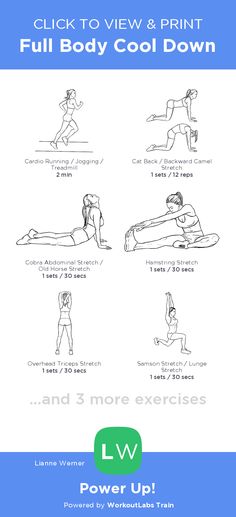 Thanks to their buffering properties, they keep the pH of the blood within normal physiological limits during intensive work of medium duration. It should be noted that the use of such additives requires precautions and is possible only after consulting a doctor,” notes Ilya Voronin. nine0050
Thanks to their buffering properties, they keep the pH of the blood within normal physiological limits during intensive work of medium duration. It should be noted that the use of such additives requires precautions and is possible only after consulting a doctor,” notes Ilya Voronin. nine0050 But what to do after a workout is definitely not worth it. Do not try to relieve fatigue by drinking alcohol: this will negate all your efforts in class. “Also, don’t go to a workout tired – you may feel energized during the session, but immediately after that you will fall even deeper into the adaptation pit. Overtraining may occur,” says Valentin Zinin.
And one more piece of advice: do you want to be less tired during class? Train more regularly! “The higher the level of your physical fitness, the more energy reserves in the muscle fiber and the better it is adapted to long-term load,” sums up Ilya Voronin. nine0007
Many people with some experience in amateur sports have encountered a similar situation: when they start exercising in order to be healthy and maybe even lose some weight for the summer swimming season, they feel a feeling of weakness and fatigue in the muscles after unusually large physical exertion.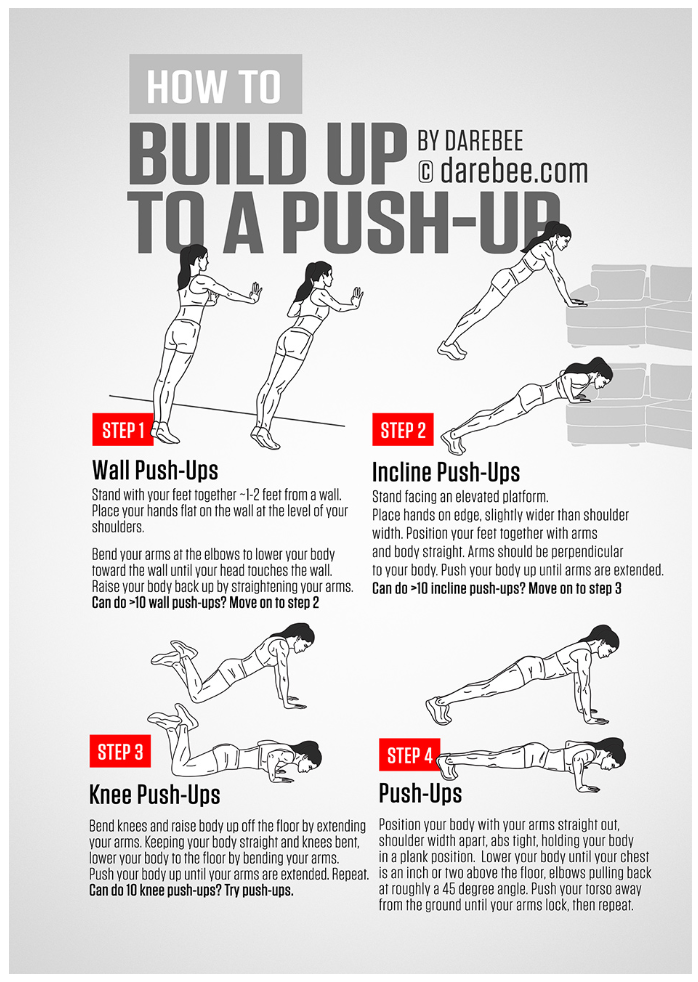 Painful sensations can persist for several hours after training, or appear later and last 3-4 days. Severe and prolonged fatigue, which can result from strenuous exercise, is harmful and dangerous to health. This condition negatively affects muscle performance, and the well-being and elasticity of muscles after intense training does not develop as quickly as we would like. Often there is a reverse picture, known to many from their own experience: after intense physical exercise, there is a lack of energy, and by the end of the training period, the feeling of hunger usually increases. To overcome such negative effects of training requires tremendous willpower, mental strength and self-control, as well as the help of medicine. It is quite natural that for the prevention and recovery of psychological and physical overstrain, as well as adaptation to stress and some other symptoms, various pharmacological agents are used in modern sports. Already at 19For 80 years, outstanding athletes in almost all sports have used L-carnitine with great success.
Painful sensations can persist for several hours after training, or appear later and last 3-4 days. Severe and prolonged fatigue, which can result from strenuous exercise, is harmful and dangerous to health. This condition negatively affects muscle performance, and the well-being and elasticity of muscles after intense training does not develop as quickly as we would like. Often there is a reverse picture, known to many from their own experience: after intense physical exercise, there is a lack of energy, and by the end of the training period, the feeling of hunger usually increases. To overcome such negative effects of training requires tremendous willpower, mental strength and self-control, as well as the help of medicine. It is quite natural that for the prevention and recovery of psychological and physical overstrain, as well as adaptation to stress and some other symptoms, various pharmacological agents are used in modern sports. Already at 19For 80 years, outstanding athletes in almost all sports have used L-carnitine with great success. In terms of chemical structure and pharmacological action, this is not a dope, but a natural biologically active substance, which, as we already know, is present in many tissues of the body and is beneficial to health. Currently, the problem of doping is becoming very acute. That is why the use of L-carnitine by athletes is the object of many scientific studies.
In terms of chemical structure and pharmacological action, this is not a dope, but a natural biologically active substance, which, as we already know, is present in many tissues of the body and is beneficial to health. Currently, the problem of doping is becoming very acute. That is why the use of L-carnitine by athletes is the object of many scientific studies.
In the USA, studies in 2001 under strictly controlled conditions showed that taking L-carnitine (2 g per day for 3 weeks) before high-intensity training was effective in helping the recovery process. Various indicators characterizing this process were measured, respectively, after 3 hours, and then after 24, 48, 72 and 96 hours after the training cycle. Taking L-carnitine lowered the level of free radicals, reduced tissue damage, reduced muscle pain and fatigue, and improved the utilization of fat as an energy source.
In another study (Switzerland, 2000), it was noted that the use of L-carnitine (2 g per day) for 5 days increased performance by 11-14% compared with the control group.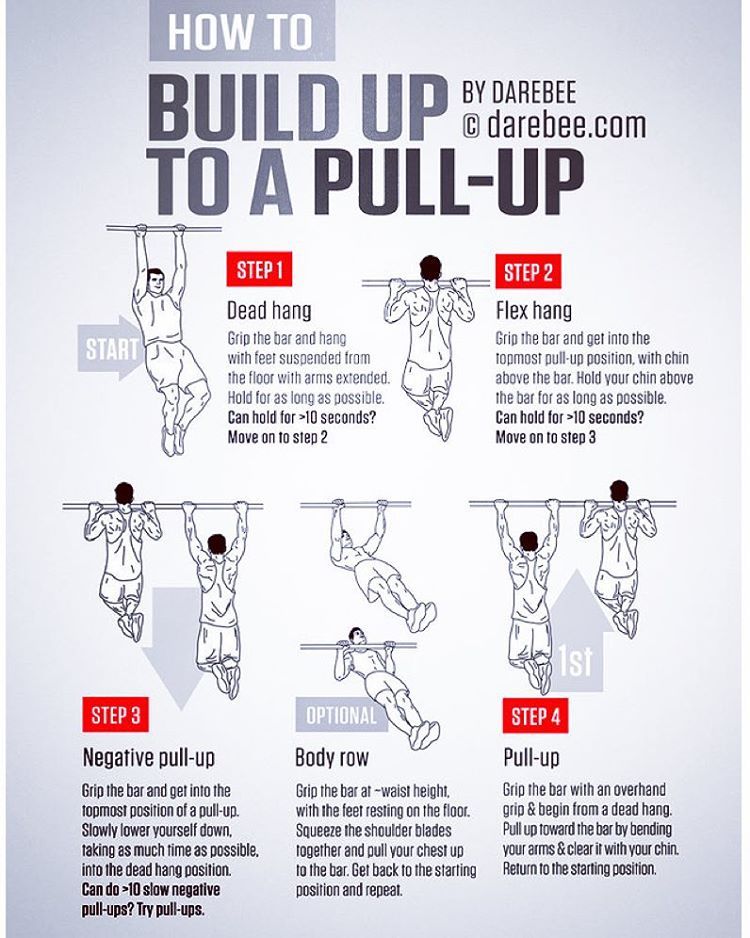 Moreover, the result was measured 25 minutes after a strenuous 15-minute cycling in both trained and untrained people. This study convincingly shows that L-carnitine not only enhances long-term but also short-term recovery. nine0007
Moreover, the result was measured 25 minutes after a strenuous 15-minute cycling in both trained and untrained people. This study convincingly shows that L-carnitine not only enhances long-term but also short-term recovery. nine0007
Sports are associated with great physical activity, which becomes more intense every year. In various sports related to martial arts (boxing, wrestling), as well as in team sports (football, hockey, basketball), there are constantly conditions for the occurrence of injuries, which is associated with a discrepancy between the ability to transfer loads by the athlete’s motor apparatus and the actual loads on him. Therefore, muscle damage is one of the most common injuries in sports practice. It has been shown that the use of L-carnitine before the competition can significantly reduce the risk of mechanical injuries. nine0007
Considering the possibilities of correcting various conditions in sports with the help of L-carnitine during training, the following positive effects of its use in sports practice can be noted:
 , which is formed as a result of muscle activity and increased detoxification of the body.
, which is formed as a result of muscle activity and increased detoxification of the body. 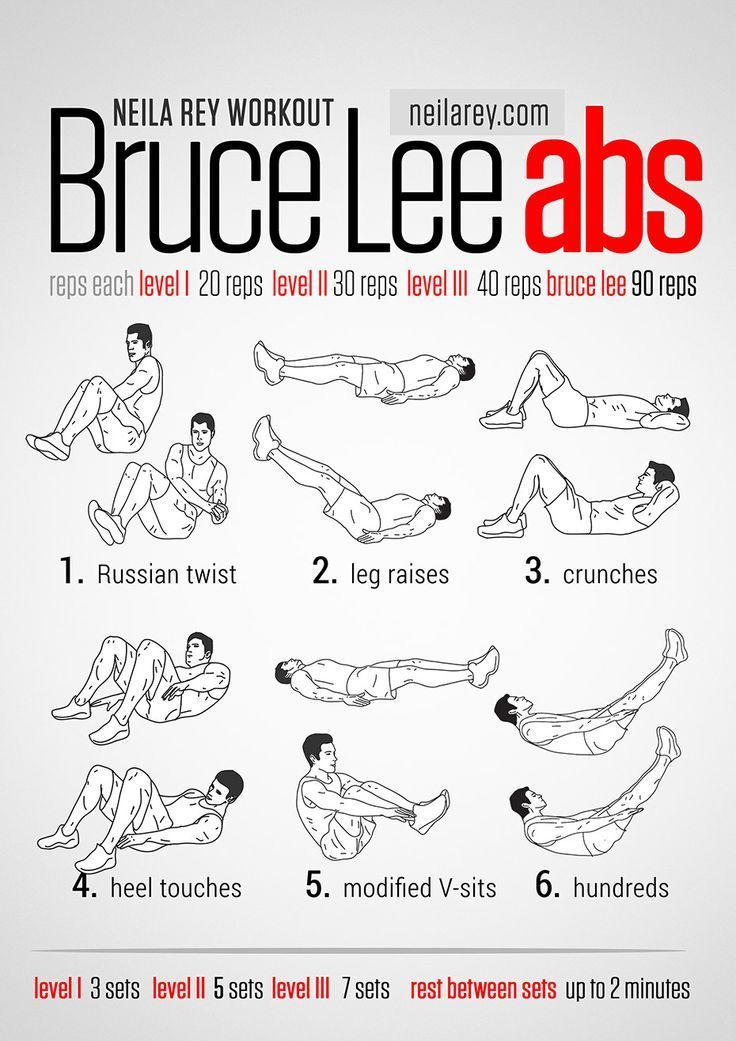 (Runners lose up to 2 g of L-carnitine during a marathon distance.)
(Runners lose up to 2 g of L-carnitine during a marathon distance.) 
Considering the possibilities of correcting various conditions in sports with the help of L-carnitine during training, it should be noted the advantages of taking it in the form of pharmacological preparations.
L-carnitine is currently sold in the form of pharmacological preparations and dietary supplements. Not always nutritional supplements meet the stated parameters. So, E.P.Brass in 2000 in the journal Am.J.Clin.Nutr published the results of a study of 12 different samples of nutritional supplements containing L-carnitine. It turned out that the content of L-carnitine in them did not exceed 52% of the value declared on the package. Moreover, 5 out of 12 studied samples had unsatisfactory pharmaceutical characteristics (solubility, sedimentation).